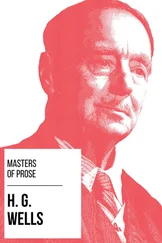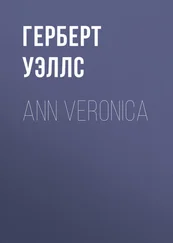I could bolt for it. . . . Silly, isn't it? Undisciplined."
He went to the window and fidgeted with the blind, looking out to
where the tree-tops of Regent's Park showed distantly over the
houses. He turned round toward her and found her looking at him
and standing very still.
"It's the stir of spring," he said.
"I believe it is."
She glanced out of the window, and the distant trees were a froth
of hard spring green and almond blossom. She formed a wild
resolution, and, lest she should waver from it, she set about at
once to realize it. "I've broken off my engagement," she said,
in a matter-of-fact tone, and found her heart thumping in her
neck. He moved slightly, and she went on, with a slight catching
of her breath: "It's a bother and disturbance, but you see--"
She had to go through with it now, because she could think of
nothing but her preconceived words. Her voice was weak and flat.
"I've fallen in love."
He never helped her by a sound.
"I--I didn't love the man I was engaged to," she said. She met
his eyes for a moment, and could not interpret their expression.
They struck her as cold and indifferent.
Her heart failed her and her resolution became water. She
remained standing stiffly, unable even to move. She could not
look at him through an interval that seemed to her a vast gulf of
time. But she felt his lax figure become rigid.
At last his voice came to release her tension.
"I thought you weren't keeping up to the mark. You-- It's jolly
of you to confide in me. Still--" Then, with incredible and
obviously deliberate stupidity, and a voice as flat as her own,
he asked, "Who is the man?"
Her spirit raged within her at the dumbness, the paralysis that
had fallen upon her. Grace, confidence, the power of movement
even, seemed gone from her. A fever of shame ran through her
being. Horrible doubts assailed her. She sat down awkwardly and
helplessly on one of the little stools by her table and covered
her face with her hands.
"Can't you SEE how things are?" she said.
Part 2
Before Capes could answer her in any way the door at the end of
the laboratory opened noisily and Miss Klegg appeared. She went
to her own table and sat down. At the sound of the door Ann
Veronica uncovered a tearless face, and with one swift movement
assumed a conversational attitude. Things hung for a moment in
an awkward silence.
"You see," said Ann Veronica, staring before her at the
window-sash, "that's the form my question takes at the present
time."
Capes had not quite the same power of recovery. He stood with
his hands in his pockets looking at Miss Klegg's back. His face
was white. "It's--it's a difficult question." He appeared to be
paralyzed by abstruse acoustic calculations. Then, very
awkwardly, he took a stool and placed it at the end of Ann
Veronica's table, and sat down. He glanced at Miss Klegg again,
and spoke quickly and furtively, with eager eyes on Ann
Veronica's face.
"I had a faint idea once that things were as you say they are,
but the affair of the ring--of the unexpected ring--puzzled me.
Wish SHE"--he indicated Miss Klegg's back with a nod--"was at the
bottom of the sea. . . . I would like to talk to you about
this--soon. If you don't think it would be a social outrage,
perhaps I might walk with you to your railway station."
"I will wait," said Ann Veronica, still not looking at him, "and
we will go into Regent's Park. No--you shall come with me to
Waterloo."
"Right!" he said, and hesitated, and then got up and went into
the preparation-room.
Part 3
For a time they walked in silence through the back streets that
lead southward from the College. Capes bore a face of infinite
perplexity.
"The thing I feel most disposed to say, Miss Stanley," he began
at last, "is that this is very sudden."
"It's been coming on since first I came into the laboratory."
"What do you want?" he asked, bluntly.
"You!" said Ann Veronica.
The sense of publicity, of people coming and going about them,
kept them both unemotional. And neither had any of that
theatricality which demands gestures and facial expression.
"I suppose you know I like you tremendously?" he pursued.
"You told me that in the Zoological Gardens."
She found her muscles a-tremble. But there was nothing in her
bearing that a passer-by would have noted, to tell of the
excitement that possessed her.
"I"--he seemed to have a difficulty with the word--"I love you.
I've told you that practically already. But I can give it its
name now. You needn't be in any doubt about it. I tell you that
because it puts us on a footing. . . ."
They went on for a time without another word.
"But don't you know about me?" he said at last.
"Something. Not much."
"I'm a married man. And my wife won't live with me for reasons
that I think most women would consider sound. . . . Or I should
have made love to you long ago."
There came a silence again.
"I don't care," said Ann Veronica.
"But if you knew anything of that--"
"I did. It doesn't matter."
"Why did you tell me? I thought--I thought we were going to be
friends."
He was suddenly resentful. He seemed to charge her with the ruin
of their situation. "Why on earth did you TELL me?" he cried.
"I couldn't help it. It was an impulse. I HAD to."
"But it changes things. I thought you understood."
"I had to," she repeated. "I was sick of the make-believe. I
don't care! I'm glad I did. I'm glad I did."
"Look here!" said Capes, "what on earth do you want? What do you
think we can do? Don't you know what men are, and what life
is?--to come to me and talk to me like this!"
"I know--something, anyhow. But I don't care; I haven't a spark
of shame. I don't see any good in life if it hasn't got you in
it. I wanted you to know. And now you know. And the fences are
down for good. You can't look me in the eyes and say you don't
care for me."
"I've told you," he said.
"Very well," said Ann Veronica, with an air of concluding the
discussion.
They walked side by side for a time.
"In that laboratory one gets to disregard these passions," began
Capes. "Men are curious animals, with a trick of falling in love
readily with girls about your age. One has to train one's self
not to. I've accustomed myself to think of you--as if you were
like every other girl who works at the schools--as something
quite outside these possibilities. If only out of loyalty to co-
education one has to do that. Apart from everything else, this
meeting of ours is a breach of a good rule."
"Rules are for every day," said Ann Veronica. "This is not every
day. This is something above all rules."
"For you."
"Not for you?"
"No. No; I'm going to stick to the rules. . . . It's odd, but
nothing but cliche seems to meet this case. You've placed me in a
very exceptional position, Miss Stanley." The note of his own
voice exasperated him. "Oh, damn!" he said.
She made no answer, and for a time he debated some problems with
himself.
"No!" he said aloud at last.
"The plain common-sense of the case," he said, "is that we can't
possibly be lovers in the ordinary sense. That, I think, is
manifest. You know, I've done no work at all this afternoon.
I've been smoking cigarettes in the preparation-room and thinking
this out. We can't be lovers in the ordinary sense, but we can
Читать дальше












